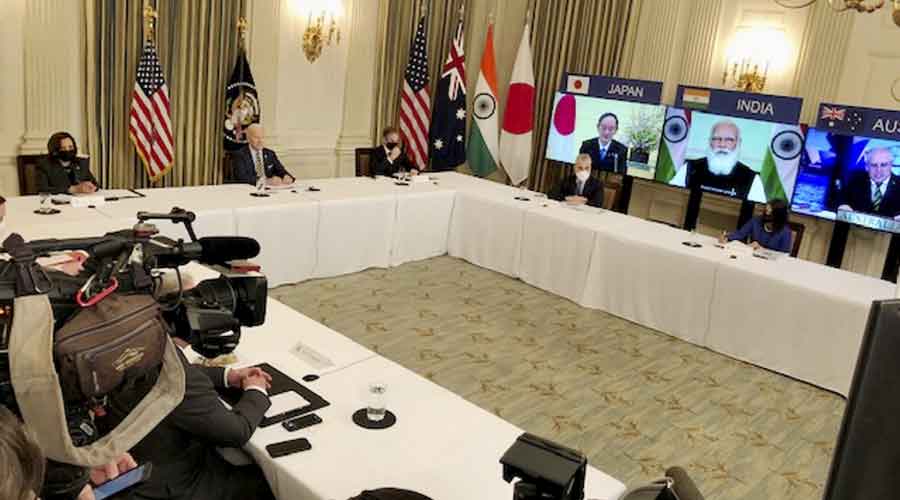The twenty-first century was supposed to be a time of Asian resurgence. Asia is, admittedly, dominating the global discourse but in a rather unexpected manner: it has become the new theatre of the Great Game. This is evident from the formation of numerous multilateral blocs that have their eyes set firmly on developments in the Asian region. The principal reason for this shift in the global geopolitical attention is China’s emergence as a powerhouse. Apart from its deep pockets, Beijing is seldom hesitant to flex its military muscles. Indeed, there is substantial evidence of Chinese belligerence. Apart from encroaching on Indian territory, China has made exaggerated territorial claims in the South China Sea. It has also heated the waters of the Indo-Pacific. The global response has been in the form of the creation of multiple coalition platforms. For instance, the United States of America, the United Kingdom and Australia — Canberra is not immune to China’s expansionism — has formed Aukus, a trilateral security pact, that would involve the sharing of intelligence and advanced technologies. Another relatively new pact is that of the Quadrilateral Security Dialogue whose members include the US, Australia, India and Japan. Quad — the US is hosting the first-ever in person summit — is undoubtedly meant to deter China from indulging in adventurism.
China, understandably, has reacted with scorn towards the formation of these alliances. What is interesting though is that there is heartburn in the other camp too. India has not been included in Aukus. The foreign secretary may have dismissed the possibility of Aukus adversely affecting Quad but New Delhi could well be cut up about not just the exclusive dimensions of Aukus but also the fact that the US transfer of advanced technology to India has been minimal. Meanwhile, France is peeved with Australia and the US because the French lost out to the Americans on a lucrative deal on nuclear submarines after Canberra tilted in favour of Washington. Significantly, ‘regional issues’ — the Indo-Pacific — figured in the latest deliberations between the French president and the Indian prime minister. Given the fluid nature of the drama unfolding in the region, New Delhi should be careful not to place all its eggs in the American basket. It should be open to forming alliances that serve its own interests. There is even a case for New Delhi to breathe life into the moribund South Asian Association for Regional Cooperation — ministerial level talks at the Saarc have been cancelled — if only to attempt and wean some of its members away from the lengthening shadow of China over them.










